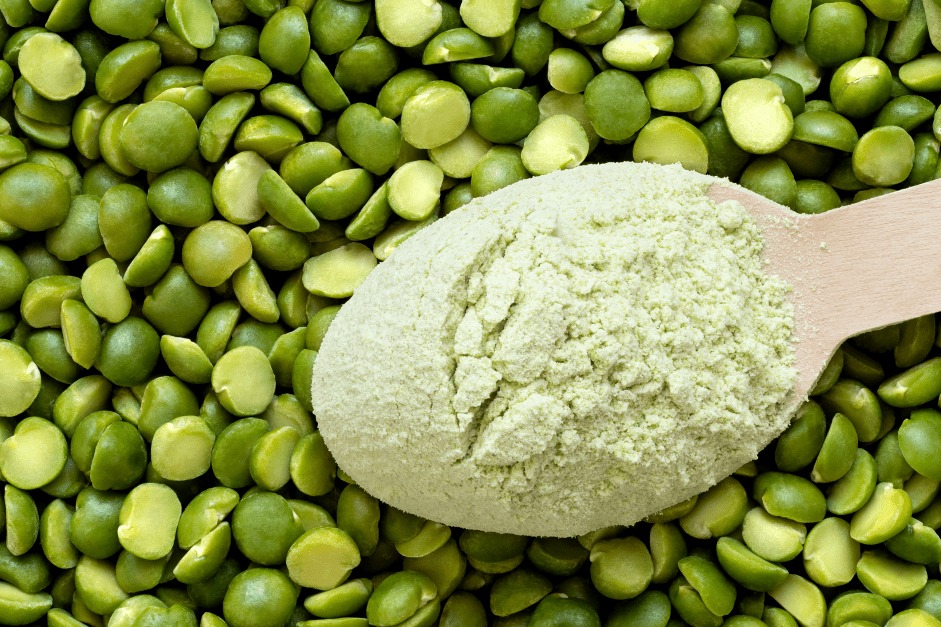Organic Dry Pea: The Sustainable Protein Powerhouse of the Future
9 Nov 2023

A new study provides detailed insights into the nutritional and economic potential of organic dry peas as a sustainable plant-based protein source.
Increased awareness of the health and environmental impact of eating meat is fuelling a gradual shift towards protein alternatives. Nowadays, about 60% of the total global protein consumed is plant-based – and this figure is only predicted to increase. To meet this growing demand, there is an expanded need for new, pesticide- and gluten-free plant proteins.
Pulse crops are an integral part of the global food system and can provide protein-rich, low-digestible carbohydrates and micronutrient-rich foods at low cost. Dry peas (Pisum sativum L.) are one of the most in-demand ingredients for the food industry, due to their high protein (20-25%) and low fat (<1%) levels.
Breeding nutritionally superior organic dry pea cultivars is essential to provide a source of clean, allergen- and gluten-free, and highly nutritious plant-based protein to help meet the world’s growing demand for sustainable protein. However, the protein quality – such as the amino acid (AA) balance – of organic dry peas has not been well-studied.
Comprehensive protein analyses
In a new study, published in PLoS One, researchers studied the variation of individual AAs, total AAs, total protein, and the in vitro protein digestibility of commercial dry pea cultivars grown at organic farms.1
The researchers assessed twenty-five dry pea cultivars grown at two organic farm locations in South Carolina, USA, for two years. The concentrations of most AAs and the total AA concentration varied significantly with cultivar. Seed total AA and protein ranged from 11.8 to 22.2 and 12.6 to 27.6 g/100g. In vitro protein digestibility and protein digestibility corrected AA score range from 83 to 95% and 0.18 to 0.64, respectively.
The team used ultrapure water generated from an ELGA PURELAB® flex 2 system for AA analyses, minimising the risk of introducing contaminants that may affect their results.
Excellent potential
Overall, this study shows organic dry pea has excellent protein quality and has good potential for future plant-based food production.
The results indicate that current dry pea cultivars bred for conventional systems vary in terms of seed AA profile, total AAs, total protein, and in vitro digestibility when grown under organic cropping systems.
The dry pea cultivars tested under organic field conditions had average protein and total AA concentrations of 20.9 g/100 g and 17.5 g/100 g respectively. A 100 g serving of organic dry pea provides a significant portion of the recommended daily allowance of six essential AAs (14-189%) and daily protein (22-48%) for an average adult, with an in vitro protein digestibility of 83-95%.
These findings will help identify suitable dry pea cultivars for organic production with increased nutritional quality. Further genetic studies are now warranted with genetically diverse panels to inform selective breeding programmes to develop nutritionally superior cultivars for organic protein production.
Why choose ELGA LabWater
ELGA LabWater has been a trusted name in pure and ultrapure water since 1937. We believe in giving you choice in how you use our water purification solutions, supported by excellent service and support.
Reference:
- Thavarajah D, et al. Organic dry pea (Pisum sativum L.): A sustainable alternative pulse-based protein for human health. PLoS One. 2023 Apr 12;18(4):e0284380. doi: 10.1371/journal.pone.0284380
Dr Alison Halliday
After completing an undergraduate degree in Biochemistry & Genetics at Sheffield University, Alison was awarded a PhD in Human Molecular Genetics at the University of Newcastle. She carried out five years as a Senior Postdoctoral Research Fellow at UCL, investigating the genes involved in childhood obesity syndrome. Moving into science communications, she spent ten years at Cancer Research UK engaging the public about the charity’s work. She now specialises in writing about research across the life sciences, medicine and health.
Lab Guide
#e95f47
